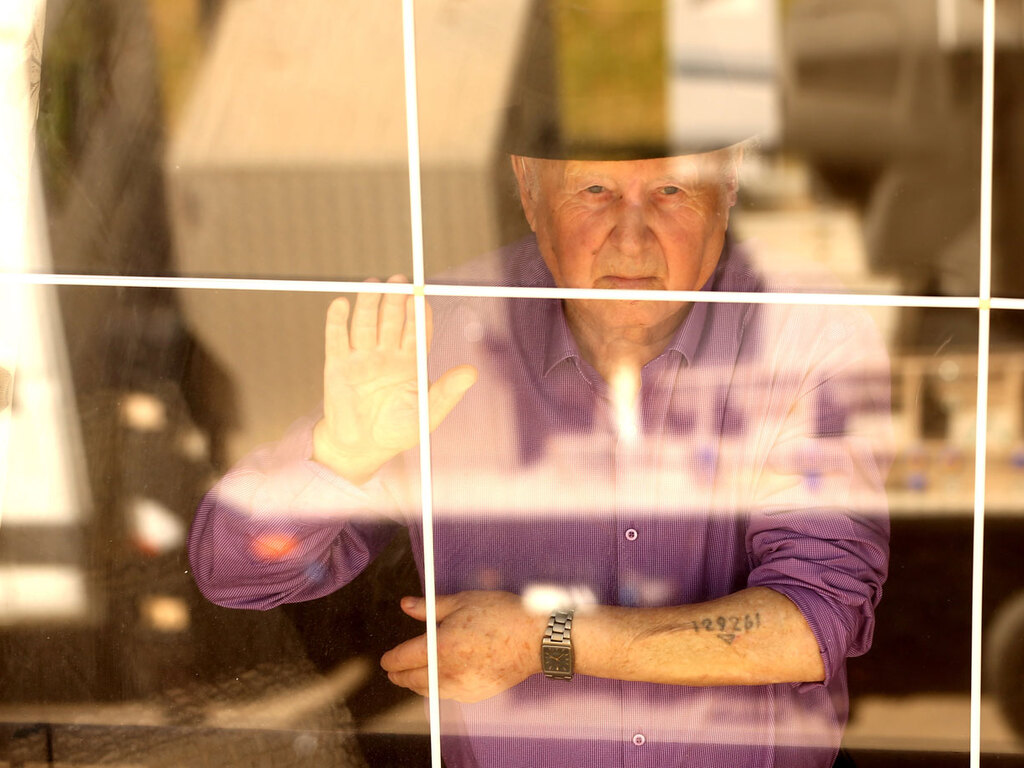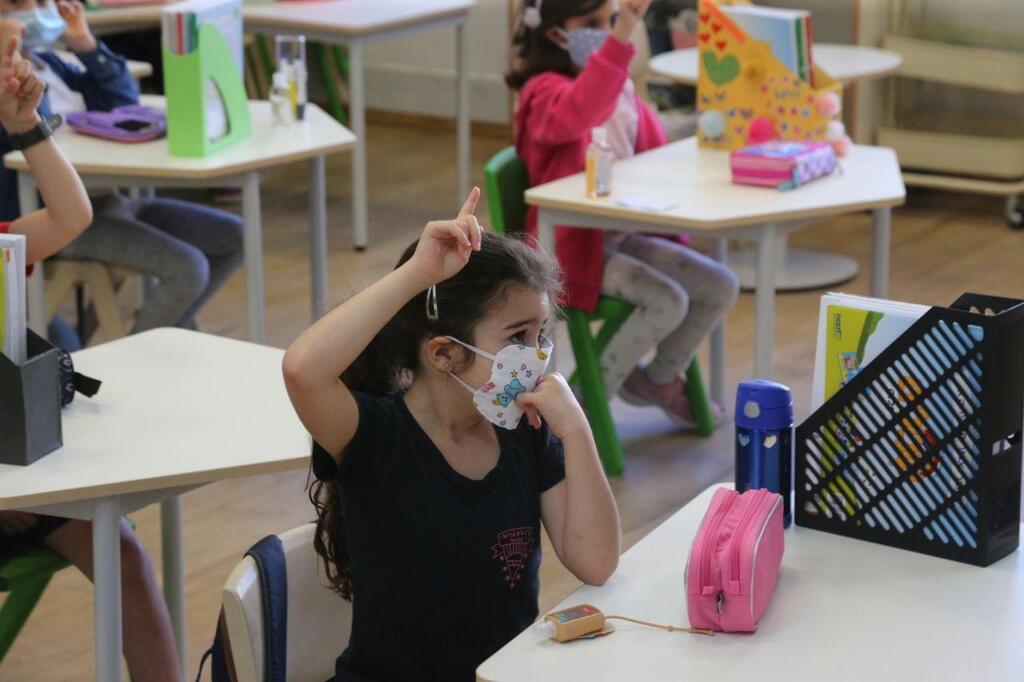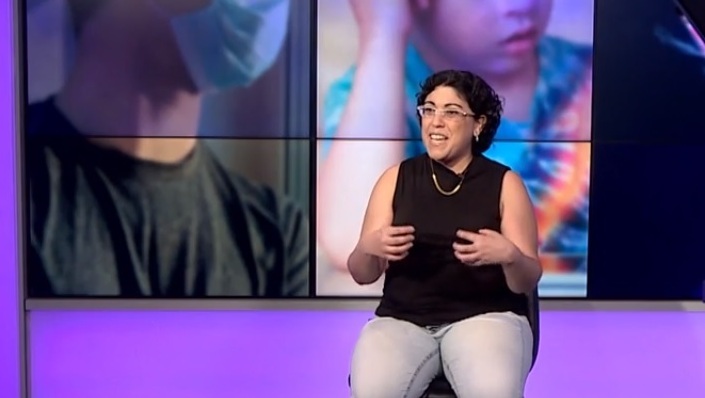Up to 20% of Israelis, nearly 1.6 million people, could be suffering from emotional and psychological distress as a result of the coronavirus pandemic, experts warned Tuesday.
Dr. Tzvi Fishel, head of the Israel Psychiatric Association, said that apart from the economic and health damage the lockdown caused, "it took away all of our normal coping mechanisms for such an emergency."
5 View gallery


An elderly Holocaust survivor in a retirement home in central Israel during the pandemic
(Photo: Elad Gershgorn)
"You cannot meet with friends, go to the movies, see a play or conduct a normal life routine," Fishel said.
"Normalcy is a calming thing and once it is gone, you cannot properly cope with stress and pressure."
According to Fishel, psychiatric experts estimated at the start of the pandemic that about a million Israelis would be in need of some sort of mental care, but now believe that number is far higher.
Fishel expressed concern that a a rise in suicides seen after the first wave of infection will happen again after the end of the current wave.
"We can estimate that about 4% of the population experience side effects of anxiety such as depression, decreased mood, a decrease in joy, sleep deprivation, eating disorders and more, to the point of suicidal tendencies and actions."
Young people and children are also feeling the brunt of the societal changes and restrictions. Experts say that they already see signs of serious emotional and societal damage among this group, which could pose problems when they return to school.
"Children are hurt by the current state of affairs twice," said educational therapist Dr. Noam Yitzhaki.
"First when they experience the reality we all have to deal with, that schools close and reopen, and the fact that there is a constant uncertainty. They feel a disconnect from their friends and their normal routines, just like the rest of us," Yitzhaki said.
"Then adults lose their role as a source for security and comfort, which throws the children deeper into anxiety and stress," she said.
Yitzhaki said that signs of this kind of mental damage have already been reported, with a rise in teenagers experiencing stress and anxiety, having suicidal thoughts and partaking in anti-social behavior like abusing drugs and alcohol.
"Schools are opened and closed on a [regular] basis. The government must understand that children need continuity - it is essential for their psychological health, especially in their formative years. The repercussions will stay with us years after the pandemic," she said.
5 View gallery


Students wearing masks at an elementary school in central Israel
(Photo: Moti Kimchi)
Another group severely hurt by the coronavirus pandemic are the elderly, who have to deal with almost complete isolation from family and friends to keep themselves safe from the pathogen.
"The psychological aspect is critical at old age," explained Dr. Ron Ben Yitzhak, a geriatrics expert.
"Elderly people are already prone to loneliness and the pandemic only made it worse."
He said that one of the main side effects of this extreme loneliness is rapid aging, which could lead to chronic ailments and deficiencies in a person's daily routine and memory.
The restrictions resulted in many elderly people not leaving their homes for months on end.
5 View gallery


Residents of a retirement home in Rishon Letzion enjoying a live concert during the pandemic
(Photo: Rishon Letzion Municipality)
Ben Yitzhak warned that such lack of mobility can damage motor and cognitive skills in the elderly, with a task as simple as getting out of a chair or a bed becoming a challenge.
"This will be a wide-spanning geriatric challenge that will take years to attempt to solve," he said. "There will be those we can help, but many will already be too far gone."
Fishel warned that regardless of the stress felt by the health system, the country's psychiatric experts are overburdened, resulting in people not receiving treatment.
Dr. Yitzhaki reiterated this sentiment: "If we do not take care of the soul, the economy and the state will never recover," she said.



